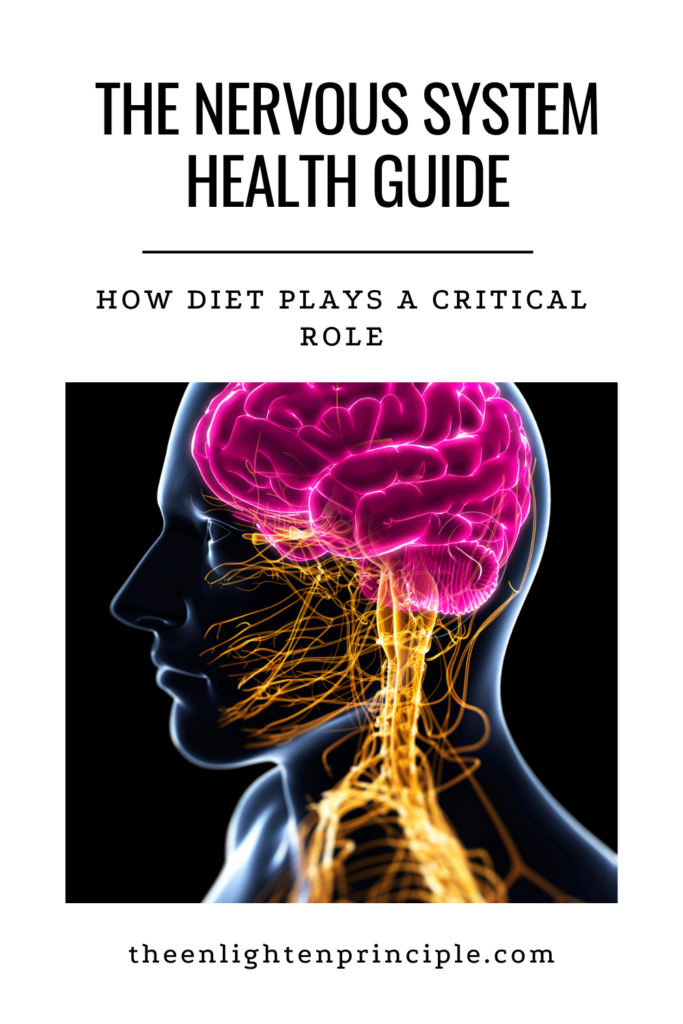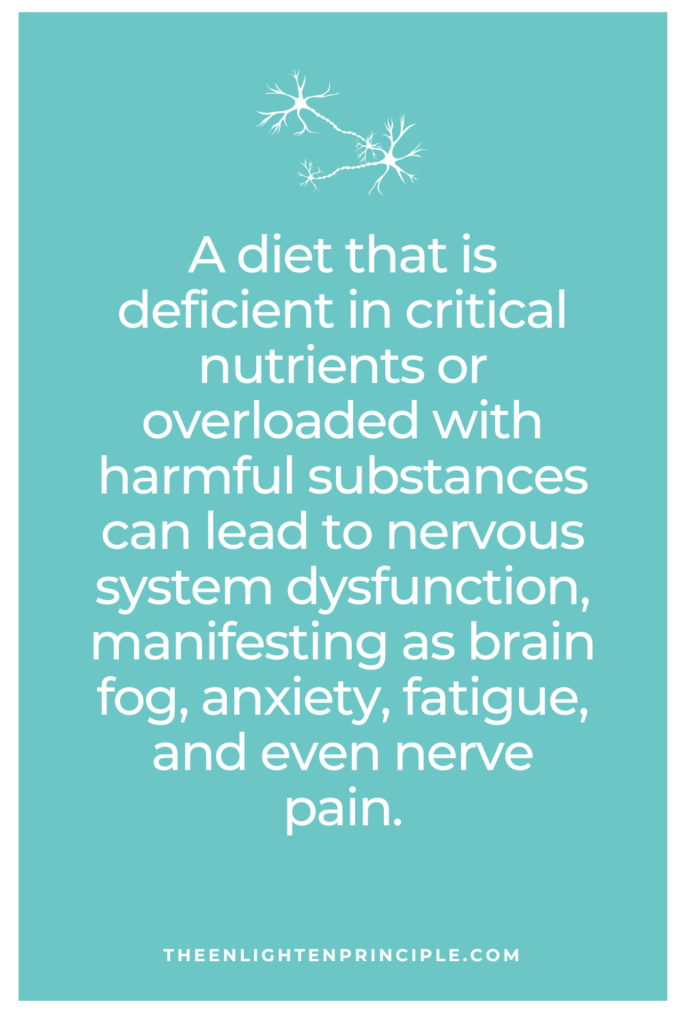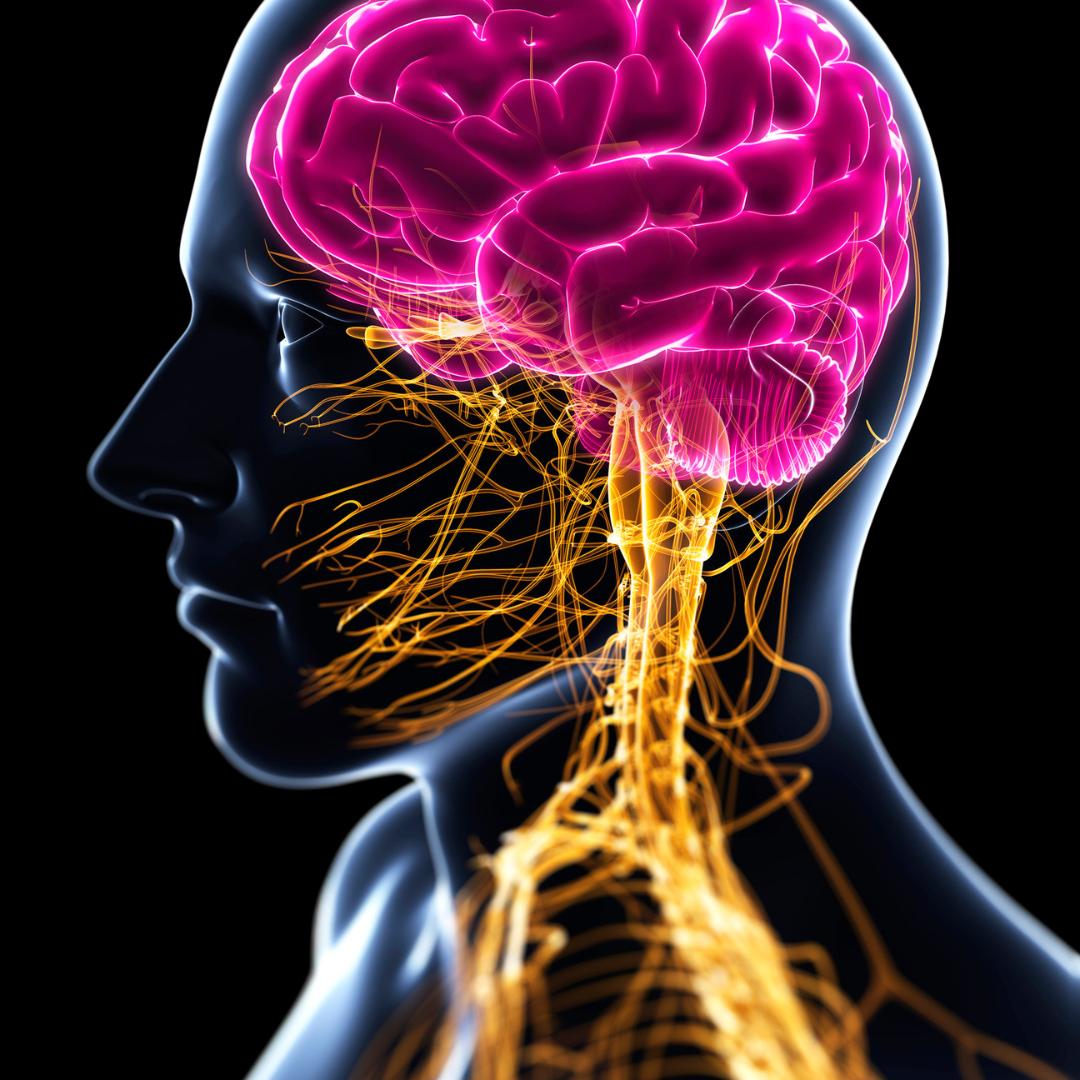Your nervous system is the body’s communication hub, a complex network that controls everything from your thoughts and emotions to vital functions like breathing and digestion. It’s an intricate system that requires proper care and balance to function optimally. While stress management, sleep, and exercise play crucial roles in nervous system health, diet is a foundational component often overlooked.
In this guide, we’ll dive into how your diet directly impacts your nervous system, why a high-fruit, high-carb, low-protein, and low-fat diet can provide essential support, and practical steps you can take to nourish this vital system. By the end, you’ll have a clear understanding of how the foods you eat can either enhance or hinder the performance of your nervous system.
Understanding the Nervous System and Its Functions
The nervous system consists of two primary components:
- Central Nervous System (CNS): Includes the brain and spinal cord, acting as the control center for your body.
- Peripheral Nervous System (PNS): Comprises all the nerves outside the CNS, connecting the brain and spinal cord to the rest of the body.
Together, these systems control voluntary movements (like walking), involuntary actions (like heartbeat), and processes such as memory, emotion, and stress response. The nervous system relies on rapid communication between nerve cells (neurons) through electrical impulses and chemical signals. To function efficiently, it requires specific nutrients, hydration, and a balanced environment free from excessive toxins and inflammation.
The Link Between Diet and Nervous System Health
Your diet provides the building blocks for every process in the body, including the nervous system. The foods you eat can influence:
- Neurotransmitter Production: Neurotransmitters like serotonin, dopamine, and GABA regulate mood, focus, and stress. These chemicals are synthesized from nutrients found in food.
- Nerve Repair and Protection: The myelin sheath, which insulates nerve fibers, requires healthy fats and certain vitamins for repair and maintenance.
- Inflammation Levels: Pro-inflammatory diets can impair nerve function and lead to chronic issues like neuropathy or mental health challenges.
- Energy for Nerve Function: The nervous system consumes a significant portion of your body’s energy, relying primarily on glucose derived from carbohydrates.
A diet that is deficient in critical nutrients or overloaded with harmful substances can lead to nervous system dysfunction, manifesting as brain fog, anxiety, fatigue, or even nerve pain.
Why a High-Fruit, High-Carb Diet Supports the Nervous System
Adopting a diet rich in fruits, vegetables, and plant-based carbohydrates can profoundly benefit your nervous system. Here’s why:
1. Fruits Provide Essential Nervous System Nutrients
Fruits are rich in vitamins, minerals, and antioxidants that directly support nervous system function. Key examples include:
- Vitamin C: Found in citrus fruits, berries, and kiwis, vitamin C is essential for the production of neurotransmitters like serotonin and dopamine, which regulate mood and stress.
- Potassium: Abundant in bananas, melons, and avocados, potassium helps maintain proper nerve function by ensuring electrical signals travel efficiently along neurons.
- Magnesium: Present in figs, leafy greens, and dried fruits, magnesium calms the nervous system, regulates the stress response, and supports nerve repair.
Unlike processed foods, fruits provide these nutrients in a natural, hydrating form that is easy for your body to absorb and utilize.
2. Carbohydrates: Clean Energy for the Nervous System
The nervous system relies heavily on glucose, the simplest form of carbohydrate, as its primary energy source. Foods like fruits, sweet potatoes, and whole grains provide a steady supply of glucose, fueling the brain and nerves without the energy crashes associated with refined sugars or high-fat diets.
Carbohydrates from plant-based sources are also less taxing on the body to metabolize, giving your nervous system the energy it needs to function optimally without creating unnecessary stress.
3. Low-Protein Diets Reduce Nervous System Strain
While protein is necessary for the body, excessive consumption—especially from animal sources—produces byproducts like ammonia and urea, which can stress the liver and kidneys. These organs then require additional support from the nervous system to maintain balance.
Plant-based proteins found in beans, legumes, and leafy greens are easier to digest and come with fiber, which helps regulate digestion and prevent the buildup of toxins that could harm the nervous system.
4. Low-Fat Diets Promote Nerve Health
While some healthy fats are essential for maintaining the myelin sheath (the protective coating around nerves), a diet high in saturated and trans fats can contribute to inflammation and slow nerve signal transmission. High-fat diets also increase the risk of atherosclerosis (plaque buildup in arteries), which can reduce blood flow to the brain and nerves.
Focusing on whole, plant-based sources of fat, like avocados and nuts, while minimizing or avoiding animal fats, helps maintain optimal nerve function without contributing to inflammation.
How Poor Diet Choices Impact the Nervous System
Conversely, diets high in processed foods, animal proteins, and unhealthy fats can negatively affect the nervous system in the following ways:
- Inflammation: High-fat and high-sugar diets promote chronic inflammation, which can damage nerves and impair brain function.
- Nutrient Deficiencies: Processed foods lack the vitamins and minerals required for neurotransmitter production and nerve repair.
- Energy Slumps: Refined sugars cause blood sugar spikes and crashes, leaving the nervous system under-fueled and fatigued.
- Toxin Buildup: Excessive protein and processed foods create metabolic byproducts that the body struggles to eliminate, putting stress on the nervous system.
Practical Tips for Supporting Your Nervous System Through Diet
Here are simple steps you can take to align your diet with the needs of your nervous system:
- Prioritize Fresh Fruits: Incorporate fruits like berries, bananas, oranges, and melons into every meal. They’re packed with vitamins, antioxidants, and hydration.
- Choose Whole, Plant-Based Carbs: Opt for sweet potatoes, quinoa, and leafy greens over refined grains or processed snacks.
- Minimize Animal Proteins: Replace meat and dairy with plant-based alternatives like beans, lentils, and tofu.
- Avoid Processed Foods: Steer clear of artificial additives, refined sugars, and trans fats that can disrupt nerve function.
- Stay Hydrated: Drink plenty of water and include water-rich fruits like cucumbers and watermelon to maintain proper hydration.
Signs Your Nervous System Needs Support
Your body often sends signals when your nervous system is under stress. Watch for these signs:
- Chronic fatigue or brain fog
- Anxiety or mood swings
- Poor focus or memory
- Tingling or numbness in your hands or feet
- Insomnia or poor-quality sleep
If you’re experiencing these symptoms, it’s time to reevaluate your diet and lifestyle.
The foods you eat directly influence the health of your nervous system. By adopting a high-fruit, high-carb, low-fat, and low-protein diet, you can provide your nervous system with the nutrients it needs to function at its best.










